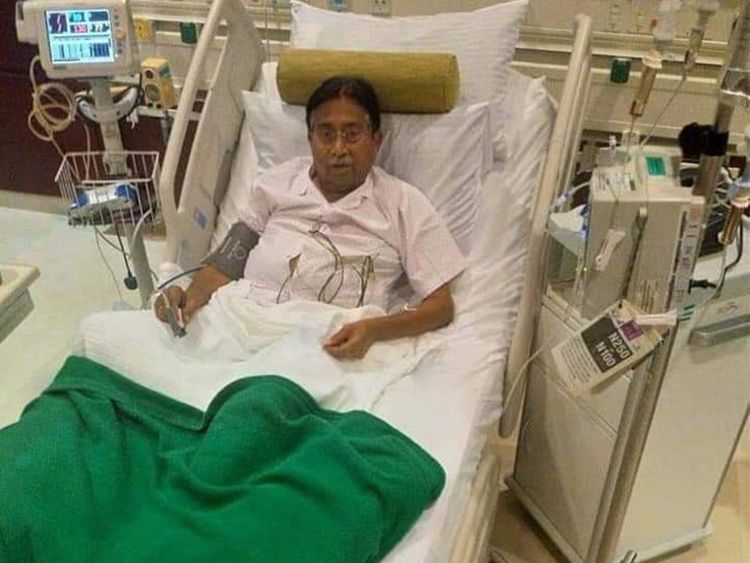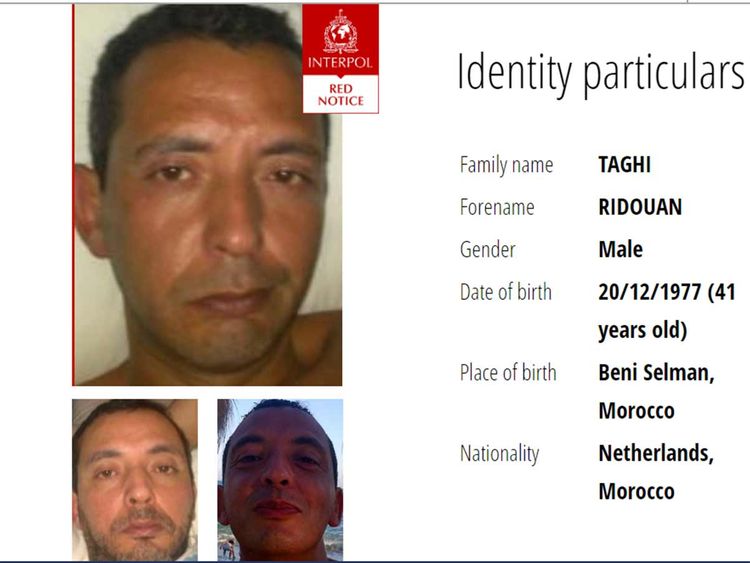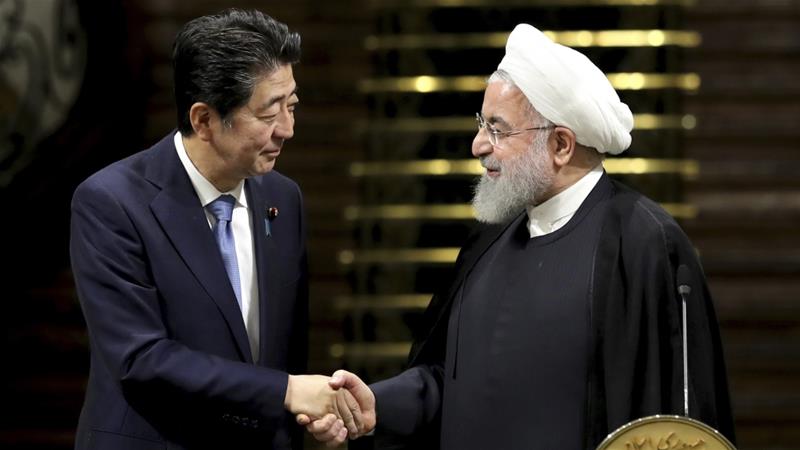Former Pakistan Army Chief General Pervez Musharraf given death sentence in high treason case
A special court in Islamabad handed the death penalty to Musharraf on Tuesday
_resources1_16a45054959_large.jpg)
SO FAR AND WHAT'S NEXT
- Musharraf has been on trial for subverting the Constitution by promulgating state of emergency in the country on November 3, 2007.
- Musharraf is currently living in Dubai. His team can appeal the verdict in the Supreme Court.
- Musharraf is suffering from amyloidosis, a rare disease caused by a build-up of an abnormal protein called amyloid in organs and tissues throughout the body.
Dubai: Former Pakistan Army Chief and ex-president General (retired) Pervez Musharraf has been given the death penalty in a treason case by a special court in Pakistan.
This is the first time in the history of Pakistan that a former army chief has been handed the death sentence. The special court order is subject to appeal.
A three-member bench of the special court, headed by Peshawar High Court Chief Justice Waqar Ahmad Seth, on Tuesday handed former military ruler Pervez Musharraf the death sentence.
Musharraf has been living in Dubai and London since 2016 after he was allowed to travel on medical grounds. He never went back despite court orders and was also earlier put on the list of most wanted people.
Musharraf was booked in the treason case in December 2013 for imposing a state of emergency on November 03, 2007 suspending the constitution of Pakistan. He was indicted on March 31, 2014, and the prosecution had tabled the entire evidence before the special court in September the same year. However, due to litigation at appellate forums, the trial of the former military dictator lingered on and he left Pakistan in March 2016.
Although the special court — comprising Justice Seth, Justice Nazar Akbar of the Sindh High Court (SHC) and Justice Shahid Karim of the LHC — had announced that it would deliver its verdict in the case today, the government’s prosecutor, Advocate Ali Zia Bajwa, said that they had submitted three petitions today.
One of the petitions asks that the court make three individuals — former prime minister Shaukat Aziz, former Supreme Court chief justice Abdul Hameed Dogar and former law minister Zahid Hamid — suspects in the case. The prosecutor said that according to a 2014 petition, Shaukat Aziz had told Musharraf to impose emergency.
What is the treason case
Musharraf has been on trial for subverting the Constitution by promulgating state of emergency in the country on November 3, 2007. According to Article 6 of the 1973 Constitution, any person who abrogates or subverts or suspends or holds in abeyance, or attempts or conspires to abrogate or subvert or suspend or hold in abeyance, the Constitution by use of force or show of force or by any other unconstitutional means shall be guilty of high treason.
And a person found guilty of high treason as defined in Article 6 of the Constitution, shall be punishable with death or imprisonment for life.
Background
The verdict announced by the special court today was the one it had reserved on November 19. The special court at that time had said it would announce the verdict on Nov 28 on the basis of available record. However, days before the final verdict was to be announced, the Pakistan Tehreek-i-Insaf (PTI) government sought deferment of the announcement of the verdict and in a fresh petition, requested the Islamabad High Court that “the special court be restrained from passing final judgement in the trial”.
On November 27, the IHC stopped the special court from issuing its verdict reserved in the case on November 19. Additionally, they directed the government to notify a prosecution team by December 5.
On December 5, the new prosecution team for the government appeared before the special court after which the special court adjourned proceedings till December 17, adding that it would hear arguments and announce the verdict on the same day. The special court was reformed six times during the course of the case.
What next
The former army chief General Musharraf is currently living in Dubai. His team can appeal the verdict in the Supreme Court. If the top court upholds the special court's verdict, the president possesses the constitutional authority under Article 45 to pardon a death row defendant
Musharraf's counsel Advocate Raza Bashir said he had submitted a request to record his client's statement via Section 342 of the CrPC, adding that his client should be given the right to a fair trial. "Musharraf should get a right to defend," said Bashir. Musharraf's counsel said his client's health was not well enough for him to appear before the court.
Why Musharraf is hospitalized frequently
Former president General (retd) Pervez Musharraf is suffering from amyloidosis, a rare disease caused by a build-up of an abnormal protein called amyloid in organs and tissues throughout the body. Musharraf showed symptoms of the disease in October 2018.
The treatment of amyloidosis is not possible in Pakistan and that is why he is staying in Dubai. Amyloidosis is a serious health problem that can lead to life-threatening organ failure.
Amyloidosis can affect different organs in different people, and there are different types of amyloid. Amyloidosis frequently affects the heart, kidneys, liver, spleen, nervous system and digestive tract.
Video: 'I am being victimised as I have not been heard,' says former Pakistan army chief General Musharraf
Former military dictator of Pakistan was hospitalised in Dubai earlier this month

Dubai: Former Pakistan army chief and ex-president General (retired) Pervez Musharraf, who was given the death penalty by a special court on Tuesday, said that he was being victimised.
A close aide of Musharraf told Gulf News that the former Pakistani leader was given the sentence without being heard by the court.
Musharraf said that all the cases against him should be dropped as he was being victimised. “I have not been heard and I’m being victimised”, said Musharraf.
“As far as this [treason] case is concerned, this is absolutely baseless,” said a visibly ailing Musharraf in a video message.
“I have served my country for 10 years. I have fought for my country. This [treason] is the case in which I have not been heard and I have been victimised,” he said.
Military slams ruling
Pakistan's military siftly slammed the special court's ruling, saying in a statement that the armed forces were in "pain and anguish" over the decision.
"An ex-Army Chief, Chairman Joint Chief of Staff Committee and President of Pakistan, who has served the country for over 40 years, fought wars for the defense of the country can surely never be a traitor," the military said in a statement, adding the legal process "seems to have been ignored".
In Dubai hospital
Musharraf was last rushed to a hospital in Dubai on December 2 following deterioration of his health. He was moved to his house in Downtown Dubai a few days ago, and is currently under the care of full time medical staff at his home as well.
A senior leader of Musharraf’s political party — All Pakistan Muslim League (APML), told Gulf News that Musharraf would issue a detailed statement after consultation with his lawyers.
Musharraf, 78, is suffering from amyloidosis, a rare disease caused by a build-up of an abnormal protein called amyloid in organs and tissues throughout the body. The treatment of amyloidosis is not possible in Pakistan and that is why he is staying in Dubai and is unable to attend the court hearing, added his party leader.
APML to challenge the verdict
In a statement to Gulf News, Mehrene Malik Adam, secretary general of All Pakistan Muslim League (APML) said that the party has decided to file an appeal against the judgement.
"We are consulting our legal team and shall announce our future course of action," she said.
"We are appalled at todays’ verdict by the special court against the former president of Pakistan, Pervez Musharraf, which was announced without hearing him. Despite a repeated request by the former president not to announce the decision in his absence and to give him the right to defend himself before the special court. We think this is an unconstitutional trial, pursued in the most unconstitutional way, without hearing his lawyer and giving them a chance to defend him," she added.
Mehrene said that immediate comments from General Musharraf was not possible as she claimed he was in the hospital.
"This is to remind that during his stay in Pakistan, as a law-abiding citizen, the former president did appear before all the courts to face the charges against him. Though, we firmly believe that all the cases created against the former president have mala fide, and he is being made subject to political victimization.
"We would like to remind that this case was formed on flimsy grounds, where aiders and abettors were excluded from the case and its hearing and the former president was singled out in the high treason case, though the decision was taken after consultation with the cabinet members, Chief Ministers, Governors and Corps Commanders.
"We show our reservations and concern against the one-sided decision by the special court, especially when the former president is under treatment and fighting against the deadly disease."
_resources1_16a3106c71a_large.jpg)




